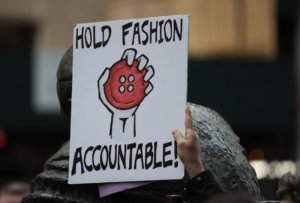Ken Pucker, professor of the practice at The Fletcher School at Tufts University, worries about many things. One of them is whether the fashion industry is going about circularity the wrong way. 
The collapse of Renewcell, which until recently transmuted clothing castoffs into sheets of dried pulp that could be dissolved to create viscose, rayon and other man-made cellulosic fibers, has been preying on his mind. Shortly after the Swedish company revealed that it would be declaring bankruptcy, H&M Group, its largest stakeholder, announced that it was linking arms with investor group Vargas Holdings to launch a new venture to ramp up the production of textile-to-textile recycled polyester. The retailer currently sources its recycled polyester from bottle-to-textile recycling, which has come under fire for nicking old plastic bottles from the more efficient and repeatable process of making new soda or water containers.
https://finance.yahoo.com/news/syre-succeed-where-renewcell-failed-130000814.html








